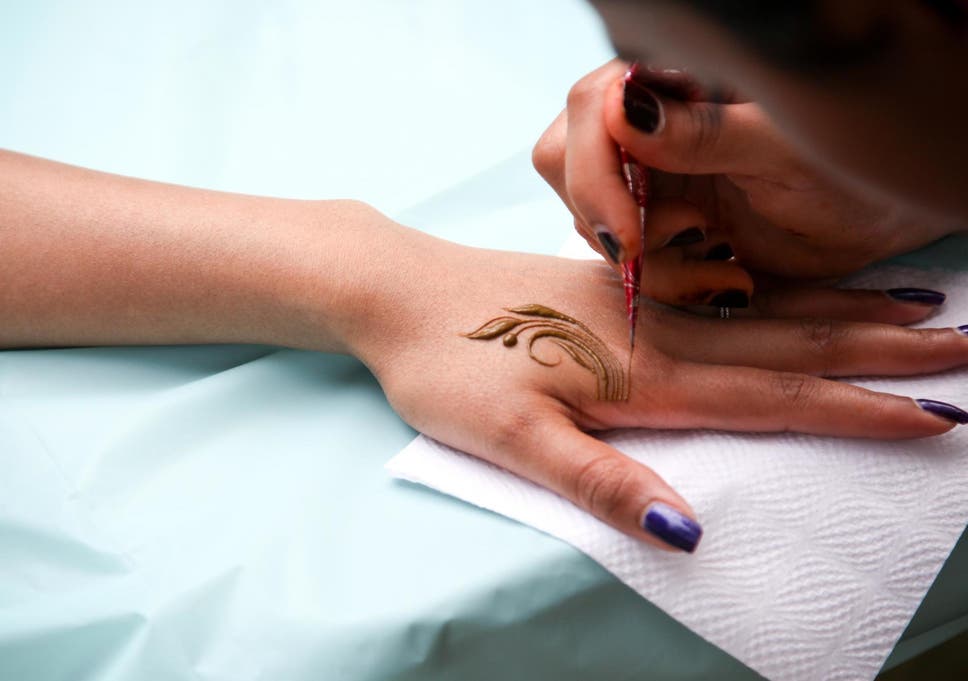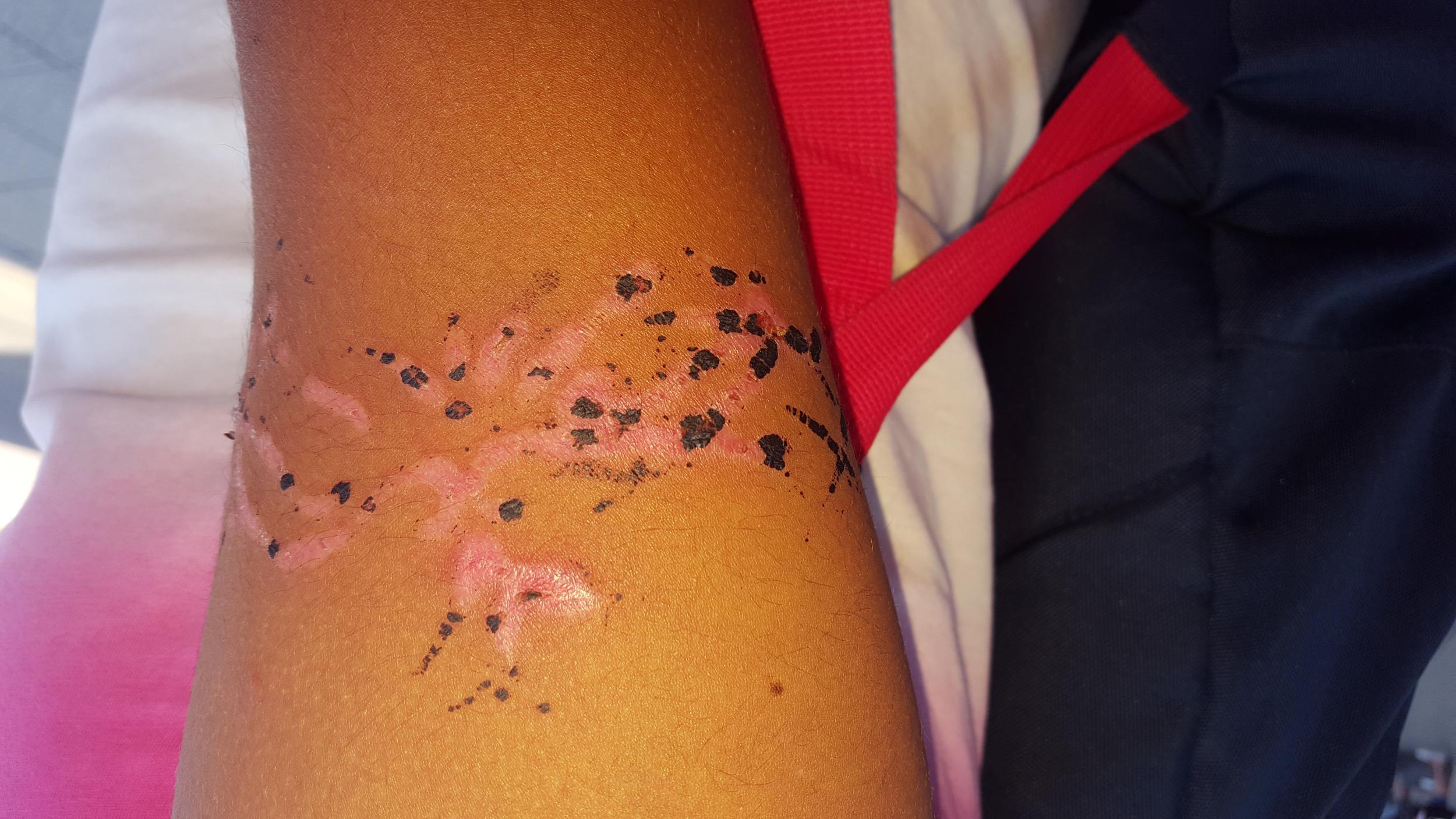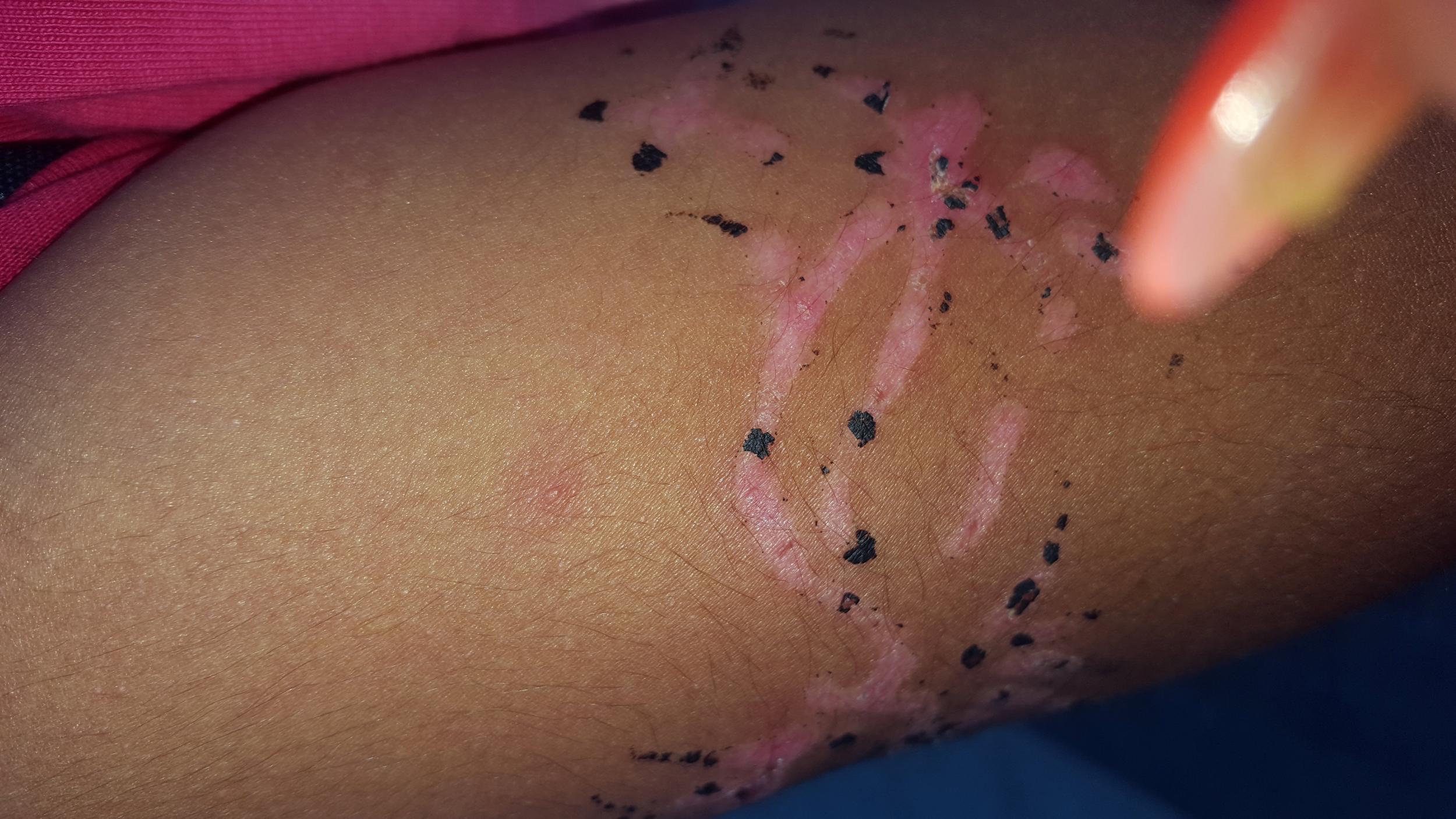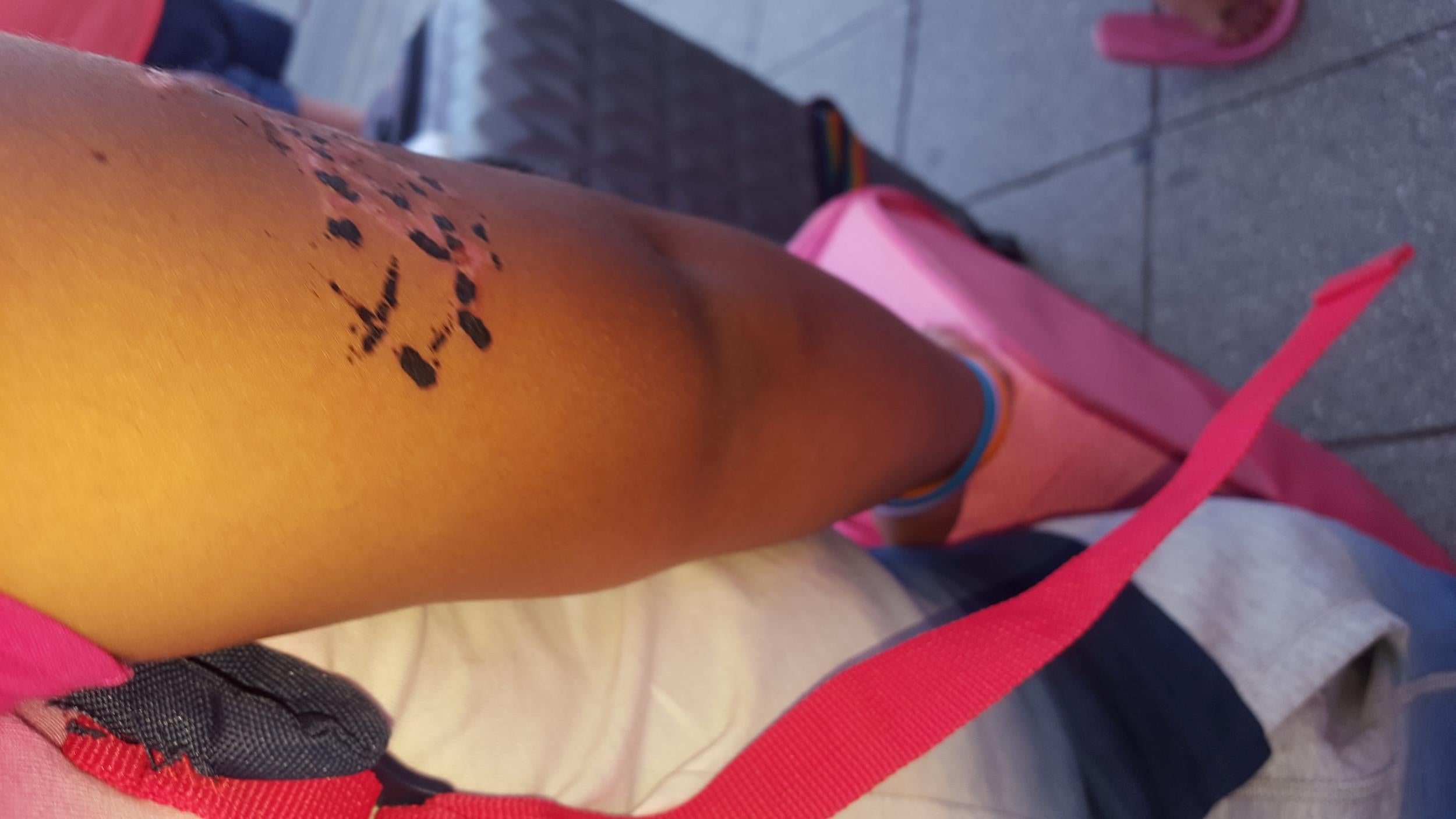
A mum has shared a warning about the danger of black henna tattoos after her son and daughter were left permanently scarred.
Jade Morris, 26, was vacationing in Tunisia with her eight-year-old son River-Jae and five-year-old daughter Farah when the children requested henna tattoos.
Having allowed the children to get the temporary tattoos in the UK previously with no adverse reaction, Morris, from Oldbury, West Mids, felt confident that these would also fade over time.
However, after returning to the hotel, Morris’s son mentioned that the tattoo on his bicep was burning.
Within 20 minutes, the design was “weeping,” at which point Morris realised something was wrong.
Rather than regular henna, made from the leaves of the henna plant and brown in colour, the children were actually decorated with black henna - a dangerous version made from the chemical p-phenylenediamine (PPD), which is used to dye hair.

Henna made from henna leaves temporarily stains the skin leaving a brown design whereas black henna can cause chemical burns, blisters and scarring when applied to the skin as a temporary tattoo.
According to the Food and Drug Administration (FDA), (PPD) is known to cause dangerous skin reactions in some people and, by law, is not permitted in cosmetics intended to be applied to the skin.
After realising that both children were having negative reactions to the tattoos, Morris said: “I tried to take it off with a cold flannel but it wouldn’t work - medics at the resort couldn’t help either and advised that I put moisturiser on it.”

In addition to severe pain for the rest of the 10-day trip, both children’s tattoos began to scar.
“It started to scab and as it was falling off you could see it had scarred,” Morris recalled. “It ruined the holiday because they couldn’t swim as it was burning and River said they sun was making it feel sore.”

Now, Morris wants other parents to know about the risks of black henna - and what to look for.
Although there were no signs informing tourists that black henna was being used, the darker colour is a sign of the dangers.
“I want parents to be aware and for there to be greater warnings to tourists who don’t know about black henna,” the mum said.







